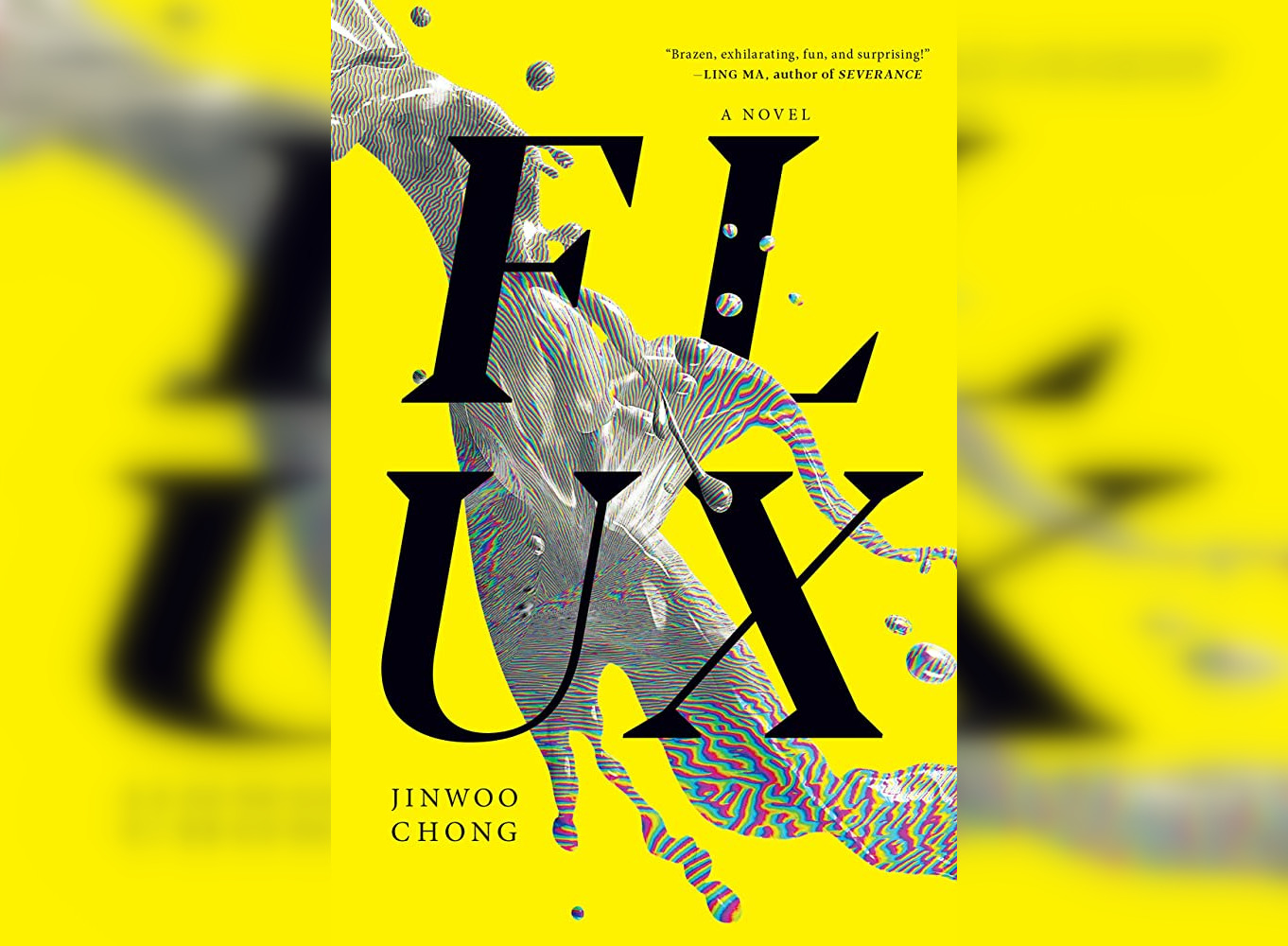
News
Summers Will Not Finish Semester of Teaching as Harvard Investigates Epstein Ties

News
Harvard College Students Report Favoring Divestment from Israel in HUA Survey

News
‘He Should Resign’: Harvard Undergrads Take Hard Line Against Summers Over Epstein Scandal

News
Harvard To Launch New Investigation Into Epstein’s Ties to Summers, Other University Affiliates

News
Harvard Students To Vote on Divestment From Israel in Inaugural HUA Election Survey
‘Flux’ Review: Dopamine and Dramamine
4.5 Stars

A debut novel is always an exciting moment. In the absence of a reputation to precede them, a debut author can release something utterly unexpected. With this luxury at hand, Jinwoo Chong has crafted in “Flux” a genre-defying story that will confound, for better or worse, even the most experienced readers.
At the heart of “Flux” is Brandon, a 28-year-old Korean-American whose story starts when he — quite unfortunately — falls down an elevator shaft. Only a short while later, he has begun a new job at the glamorous, accelerating, and not-the-least-bit mysterious energy company Flux. Over the course of the novel, Brandon finds that his new role is not what he expected it to be. Meanwhile, alongside two other central but less salient characters, Brandon copes both with the acute trauma of his past and with his own identity in the present.
One of the strongest elements of “Flux” is its refusal to conform to literary norms. At no point in reading this novel is it possible to categorize it in a single genre. Although the book’s amorphism can be confusing at times, the novel would not function without it.
The book’s different inspirations and elements combine to make Brandon a uniquely realistic protagonist. At once he is funny, unlikeable, relatable, hopeful — and he can, at times, command a tremendous deal of pity.
Chong’s combination of these hyperrealistic character elements with the novel’s timeliness make its science fiction basis all the more impressive. For example, Flux’s founder, Io Emsworth, is instantly recognizable as a fictionalized version of Elizabeth Holmes. Other references point to popular media such as “Indiana Jones.” On a macro level, subtle (and sometimes not so subtle) discussions about energy, sustainability, and inequality in a not-so-far-off science fiction future will lead readers to ponder what time period they are actually reading about.
This merging of the present and future often compounds the already disorienting narrative. Throughout much of the novel, quick chapter breaks, perspective shifts, and skips in time create a dizzying reading experience. Moreover, Chong deftly creates a claustrophobic aura, making “Flux” both highly nauseating and wonderfully realistic at the same time.
However, in the middle third of the novel, the novel’s plot and characters unravel methodically yet slowly. Amidst the novel’s already-confusing daze, this is likely where most readers will put the book down. During this section of the novel, “Flux” succeeds by leaning more heavily into its humanistic plot elements of ethnicity, sexuality, and family — but the novel’s strongest moments are when these components merge with its science fiction core.
Overall, “Flux” is a debut novel that is pleasantly surprising at every turn. Never trying to push too hard in any literary direction other than its own, the novel is a breath of fresh air. As with any uncharted endeavor, it suffers several hiccups throughout, particularly regarding its intentionally confusing storytelling. Still, “Flux” is ultimately a unique and fulfilling story bolstered by its myriad applications to its readers’ comparatively mundane lives.
—Staff writer Alexander J. Gerstenhaber can be reached at alexander.gerstenhaber@thecrimson.com.
Want to keep up with breaking news? Subscribe to our email newsletter.
